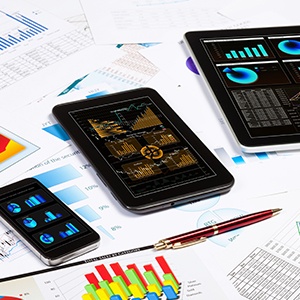 Technology is utilized by many industries, and healthcare is no different. The introduction of smartphones and other mobile devices has spurred the growth of technology in healthcare. A rapidly growing area of healthcare technology is mHealth, or mobile healthcare. What is mHealth? Below are definitions from leading health organizations about mHealth.
Technology is utilized by many industries, and healthcare is no different. The introduction of smartphones and other mobile devices has spurred the growth of technology in healthcare. A rapidly growing area of healthcare technology is mHealth, or mobile healthcare. What is mHealth? Below are definitions from leading health organizations about mHealth.
Foundation for the National Institutes of Health (FNIH) - mHealth is the delivery of healthcare services via mobile communication devices.
The National Institutes of Health (NIH) - mHealth is the use of mobile and wireless devices to improve health outcomes, healthcare services and health research.
World Health Organization (WHO) - mHealth is an area of electronic health (eHealth), and it is the provision of health services and information via mobile technologies such as mobile phones and Personal Digital Assistants (PDAs).
Benefits of utilizing mHealth technology include increased productivity, improved data accuracy, enhanced doctor to patient communication, easier access to data and improved ability to reach patients in remote locations. For this blog, we’ve gathered multiple statistics about mHealth that point to its popularity.
- The global revenue projection for mHealth applications in 2017 is $26.560 billion.
- The mHealth market is projected to reach $49.12 billion by 2020.
- By April 2015, 90 percent of healthcare providers maintained mobile devices to engage with patients.
- An estimated 70 percent of physicians use smartphones and medical apps.
- Today’s mHealth app publishers predominantly target chronically ill patients (31 percent) and health and fitness-interested people (28 percent).
- More than 50 percent of smartphone users gather health-related information on their phones.
- A majority (51 percent) of healthcare providers identify lack of funding as the top barrier for the effective use of mobile technology.
- An estimated 30 percent of mHealth users are caregivers.
- The European market is expected to be the largest regional mHealth segment by 2020.
- A staggering 93 percent of physicians believe mHealth apps can improve patients’ health.
- Approximately 50 percent of physicians in survey use their mHealth technology every day.
- Providers used a variety of means to engage with patients: app-enabled patient portals (73 percent), telehealth services (62 percent), text communications (57 percent) and remote patient targeting (49 percent).
- By 2017, 50 percent of smartphone users will have downloaded mHealth apps.
- In 2014, the remote monitoring services segment dominated the mHealth services market with a share of 63.7 percent.
- Improved quality and continuity of care is the number one reason for physician adoption of mHealth.
- The average age of mHealth users is 35.
- Approximately 54 percent of mHealth users are male.
- An estimated 69 percent of clinicians use mobile technology to view patient information such as laboratory results or digital images.
Learn More
Syntrix Consulting specializes in data reporting and business analytics for healthcare organizations. Our comprehensive solutions include creating reports, dashboards and data extracts that are used to improve patient care, financial decision support, quality reporting, regulatory compliance and operations management. Contact us today to learn more or schedule a free consultation.
For more information on Epic reporting and how it could help your healthcare facility, download our FREE eBook:
